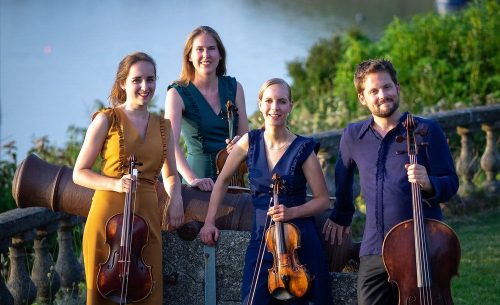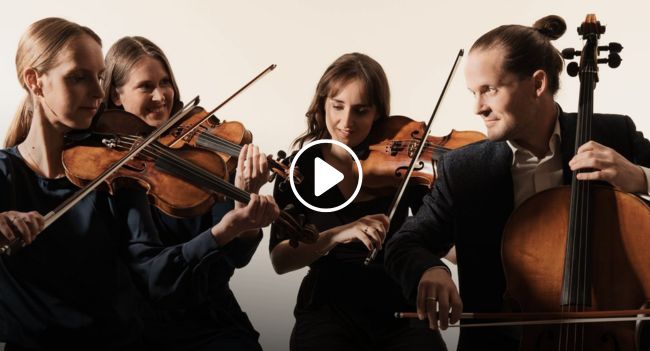The Dutch string quartet span Pérotin to Reich in a thoughtful recital, while anthems by Dyson, Howells, Elgar and Finzi get the full orchestral treatment

For a string quartet to branch beyond mainstream repertoire (not that we ever tire of Haydn, Schubert, Beethoven or the rest who count as “mainstream”) requires thought and daring. The Dudok Quartet Amsterdam have both. The group’s latest release, What Remains (Rubicon), takes its title from a two-part work by Joey Roukens (b.1982), written for them in 2020. The first movement is hard driven, full of whirring energy, the second meditative, with reflections on medieval or renaissance polyphony.

In response, the recital then features early music by Pérotin, Guillaume de Machaut and Carlo Gesualdo. Steve Reich’s classic Different Trains (1988), for string quartet and tape, brings us forward in time. (The Dudoks have recorded all 16 string parts instead of using the pre-recorded tape made by the Kronos Quartet, the dedicatees, to facilitate performances of this work.) To end, they play the ethereal Oraison from Fête des belles eaux by Olivier Messiaen, which the composer reworked for his Quartet for the End of Time. Spanning a thousand years through six composers, What Remains is finely judged and excellently delivered.

One for fans of English choral music, but not as you expect to hear it: Orchestral Anthems (Delphian) combines the beautifully drilled Choir of Merton College, Oxford and soloists, with Britten Sinfonia, nuanced and stylish, conducted by Benjamin Nicholas. As advertised in the title, on this grand-scale recording they perform works not often heard in their orchestral versions.

Mostly from the first half of the last century, the anthems are by Edward Elgar, George Dyson, Edward Bairstow, Herbert Howells, Ralph Vaughan Williams and Gerald Finzi. The Anglican choral favourite, Finzi’s Lo, the full, final sacrifice, orchestrated for the 1947 Three Choirs festival and full of subtle woodwind detail, stands out. Dyson’s Magnificat and Nunc Dimittis are notably rousing. An Elgar orchestration of Purcell (1659-95) is the only outsider but also a lasting inspiration for all these composers.
